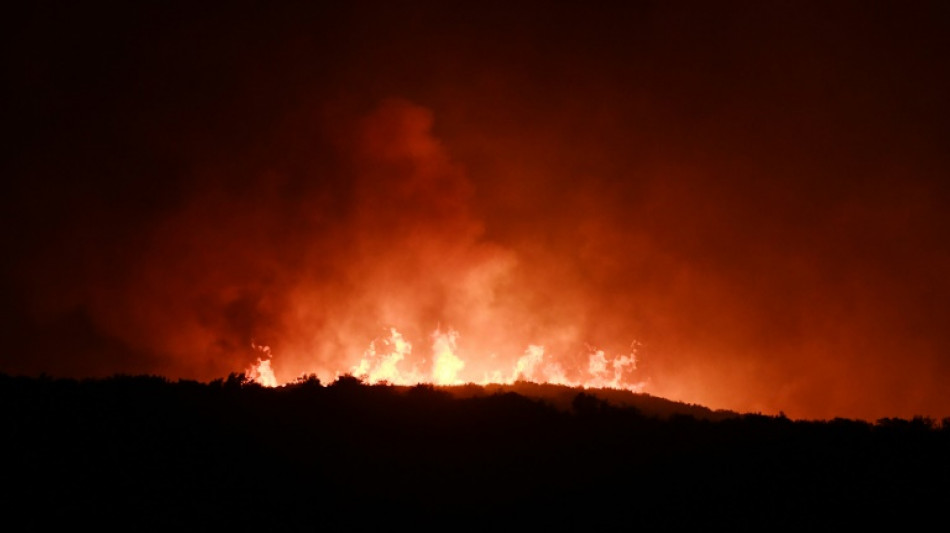
SCS
0.2300


Greek fire crews on Thursday scrambled to put out wildfires raging for two weeks around the country that left five dead before strong winds forecast for the day rekindle blazes.
Hundreds of firefighters backed by European Union reinforcements were struggling to contain the flames on the islands of Rhodes, Corfu and Evia, in addition to a new front that erupted Wednesday in central Greece.
Around the Mediterranean, fires this week also flared in Croatia and Italy, and flames killed 34 in Algeria in extreme heat that has left landscapes tinder dry.
"We are living through dangerous summer days, as are nine other Mediterranean countries," Civil Protection Minister Vassilis Kikilias said Wednesday.
In Sicily, officials in some areas reported an easing of the situation on Thursday, although the regional government has declared a state of crisis following days of high temperatures and fires.
Officials have said more than 600 wildfires have broken out around Greece since July 13.
The vast majority were tackled before they could pose a threat, the government said.
The civil protection ministry has warned of an extreme danger of fire in over a dozen Greek regions on Thursday.
A forest fire broke out Wednesday in mountainous terrain in Haskovo, near the Greek-Bulgarian border, and was still out of control.
Early Thursday, another fire broke out near homes in the leafy Athens suburb of Kifissia but was swiftly extinguished.
Tens of thousands of residents and tourists at the height of the busy travel season have been evacuated, including 20,000 people on Rhodes, where officials declared a state of emergency this week.
A dangerous fire broke out Wednesday near the industrial zone of the central city of Volos, leaving two dead.
An elderly disabled woman was found dead inside her burned camper van in a coastal area near Volos and a cattle farmer was killed while trying to rescue his livestock.
The industrial zone was closed Thursday as a precaution. Six communities and villages around the city of nearly 140,000 people were evacuated early in the morning, with more placed on standby.
Temperatures are expected to drop Thursday after a prolonged heatwave but near-gale winds are expected to complicate efforts to douse the fires.
- 'Difficult' days ahead -
Prime Minister Kyriakos Mitsotakis on Wednesday told the cabinet that the coming days will be "difficult as the heatwave will be followed by strong winds."
"Very high temperatures of over 40 degrees Celsius (104 Fahrenheit) and intense winds have created fire fronts of many kilometres," Civil Protection Minister Kikilias said, adding that crews were battling through "inconceivable fatigue."
Scientists from the World Weather Attribution group said this week the heatwaves that have hit parts of Europe and North America this month would have been almost impossible without human-caused climate change.
The EU crisis management commissioner's office on Wednesday said over 490 firefighters and seven planes had been deployed to different areas in Greece under the bloc's civil protection mechanism.
- Compensation -
In Italy, three people died as a result of the fires earlier this week, with investigations underway into a potential fourth victim, after a 61-year-old woman was found dead in a lift stuck for several hours in Palermo, potentially because of an electricity blackout.
Sicily's civil protection agency estimates the fires that have swept the island in the last two days "have caused more than 60 million euros in damage".
Prime Minister Giorgia Meloni's government late Wednesday approved 10 million euros to compensate tourists whose trips to Sicily have been disrupted by the fall-out from the heatwave.
This includes those affected by the closure of Catania airport, which suffered a fire in the main terminal on July 16 and has been offering only a vastly reduced service since then.
Catania and surrounding areas have also suffered blackouts and water shortages in the past week that electricity suppliers blamed on heat damage to underground cables.
A.Maldonado--TFWP